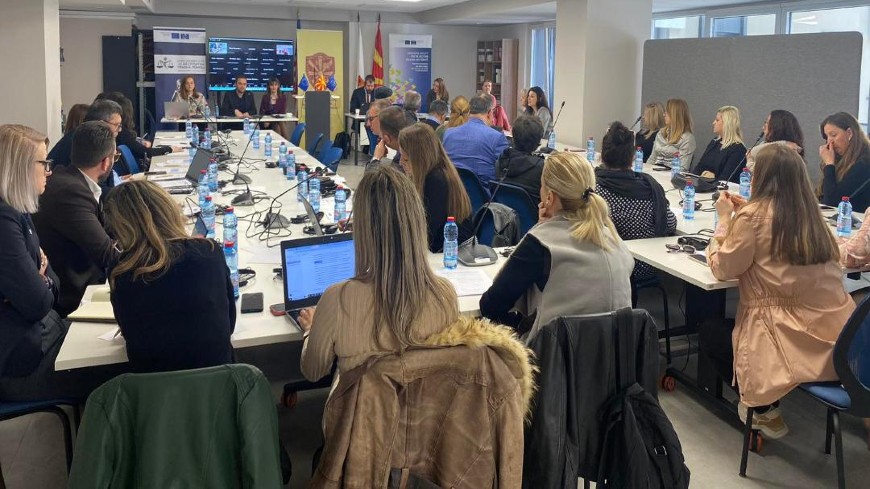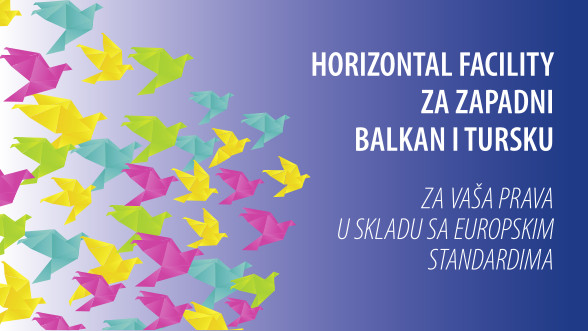The 14th meeting of the National Co-ordination Body for the implementation of the Law on Free Legal Aid in North Macedonia, gathered in Skopje on 20 March to discuss the progress and important challenges regarding the implementation of free legal aid system in North Macedonia.
Organised in the framework of the continuous support that the European Union and the Council of Europe are providing to improve the Free Legal Aid services for the citizens of North Macedonia, and hosted by the Bar Association, the event gathered around 40 participants. They represent the key institutions (and members of this body) in the field of free legal aid including the Ministry of Justice and its Regional Offices (ROs), Bar Association, lawyers, civil society organisations (CSOs) and legal clinics authorised for providing free legal aid. The event was also attended by representatives of UNHCR and International Development Law Organisation (IDLO). Additional 25 participants joined the event online.
The pivotal role of the National Co-ordination Body as a crucial co-operation and inter-institutional co-ordination mechanism aimed at enhancing access to justice for citizens was highlighted by Oleg Soldatov, Head of the Council of Europe Programme Office in Skopje and John Eames, judge at the UK and international consultant of the Council of Europe.
In the meeting, the Ministry of Justice presented 2023's free legal aid statistics, sparking a discussion on key challenges. Concerns arose over severe understaffing in the FLA Department, with only two employees handling numerous tasks, risking ineffective duty fulfillment. Urgent amendments to the Law on Free Legal Aid are necessary, especially given the recent Law on Expertise enactment. Without alignment, FLA cases may deadlock, hindering citizens' access to justice. Additionally, the Ministry must fulfill its obligation to provide direct financial support to authorized associations and legal clinics for primary legal aid projects. The participants concluded that addressing these challenges is paramount to ensuring an equitable and accessible legal aid system for all citizens.
Throughout the meeting, participants also engaged in discussions regarding the Developmental Sectorial Strategy for Judiciary 2024 – 2028, which delineated crucial measures and activities aimed at bolstering access to justice. Notably, ensuring the sustainability of the National Co-ordination Body was incorporated into this newly adopted Strategy, alongside amending the Law on Free Legal Aid. These discussions underscored the importance of long-term planning and legislative adjustments in fortifying the legal framework to better serve citizens' needs.
A special panel was convened to focus on the vital role of legal clinics in providing primary legal aid to victims of crimes and gender-based violence. This panel, jointly organised with the IDLO, facilitated insightful discussions on enhancing the efficacy of legal clinics in addressing these critical issues.
The action “Towards a consolidated and more efficient Free Legal Aid (FLA) system in North Macedonia” is part of the “Horizontal Facility for the Western Balkans and Türkiye”, a joint European Union and Council of Europe programme implemented by the Council of Europe. The action will keep supporting the National Co-ordination Body on free legal aid in order to achieve better co-ordination and communication among the main actors in the free legal aid system in future.


